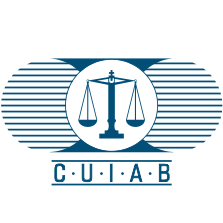This article has multiple issues. Please help improve it or discuss these issues on the talk page . (Learn how and when to remove these messages)
|
| California Unemployment Insurance Appeals Board | |
|---|---|
 | |
| Established | 1943 |
| Location | Various |
| Composition method | Multiple individuals selecting |
| Authorised by | California Unemployment Insurance Code § 401 |
| Appeals to | Superior Court |
| Appeals from | Employment Development Department |
| Judge term length | 4 years |
| Website | cuiab |
| Marty Block | |
| Currently | Chair [1] |
| Lead position ends | January 1, 2023 |
The California Unemployment Insurance Appeals Board is a quasi-judicial administrative court in the U.S. state of California which hears appeals from determinations on unemployment insurance claims and taxes by the Employment Development Department. [2] [3] It is governed by a five-member Board, of which three are appointed by the Governor, one is appointed by the Speaker of the Assembly and one by the Senate President pro tempore. [4] The Board was initially formed in 1943. [5]
Contents
In the 2020-2021 fiscal year, CUIAB handled a total of 189,220 appeals, of which 180,163 were unemployment insurance appeals. [6]
